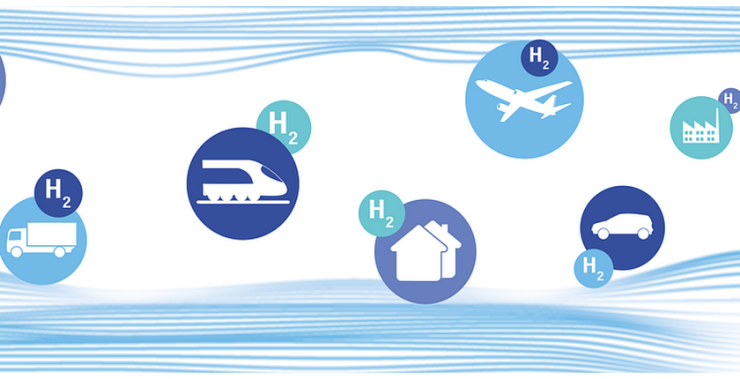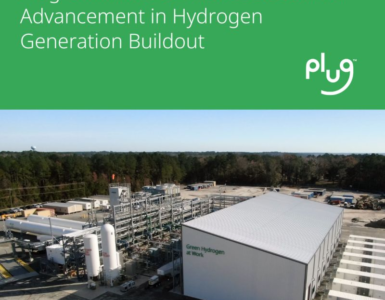Hydrogen Economy – 24 governments announce over 200 clean energy projects to demonstrate new technologies in response to climate crises.
23 national governments and the EU, collaborating through Mission Innovation (MI), announced that they will coordinate to deliver 221 demonstration projects globally this decade to accelerate clean energy technologies in the hardest to abate sectors.
The announcement, made at the 7th MI ministerial meeting in Pittsburgh, will drive public-private investment in technologies which need to be commercialised by 2030, including: at least 50 large-scale demonstration projects to decarbonise energy-intensive industries like steel, cement and chemicals; five projects on five continents to demonstrate the integration of up to 80% renewable energy into energy grids; and the identification of 100 ‘hydrogen valleys’ worldwide.
The goal is to achieve tipping points in cost by 2030 to accelerate the delivery of technologies to decarbonise sectors responsible for more than 52% of global greenhouse gas emissions.
🔥 What about we co-host a webinar? Let's educate, captivate, and convert the hydrogen economy!
Hydrogen Central is the global go-to online magazine for the hydrogen economy, we can help you host impactful webinars that become a global reference on your topic and are an evergreen source of leads. Click here to request more details
Driving innovation in critical sectors
These demonstration projects are a direct response to analysis by the International Energy Agency that at least $90 billion of public funding is required by 2026 to demonstrate technologies necessary to decarbonise global energy systems, such as renewables, battery storage, and hydrogen-based fuels[1].
This is contingent on international coordination to prove solutions quickly at scale in multiple configurations and in various regional contexts. These technologies must be commercially viable by 2030 to be deployed at scale to achieve net zero by 2050 (a target that has now been adopted by 104 countries)[2].
Mission Innovation is the leading global initiative to catalyse public-private coordination of research, development and the demonstration of clean energy technologies.
Its seven ‘Missions’ facilitate high ambition alliances between countries, corporations, investors and research institutes to reach ambitious climate goals by 2030 and make sure more innovation happens, more rapidly.
Together they provide the mechanism to drive international collaboration and coordination, allowing governments to work together and with the private sector to target investment and action.
The plans announced today include:
· Net-Zero Industries Mission: at least 50 large-scale demonstration projects to decarbonise energy-intensive industries such as steel, cement and chemicals by 2030 to facilitate the full decarbonisation of industry in multiple regions of the world by 2050.
· Green Powered Future Mission: five continental demonstrators integrating up to 80% Variable Renewable Energy into existing electricity grids by 2024. After 2024, the programme will target the integration of up to 100% renewable energy.
· Clean Hydrogen Mission: 100 Clean Hydrogen Valleys identified by 2024, to demonstrate innovative hydrogen value chains and build scale for different end-use sectors, driving down the cost of clean hydrogen. This could stimulate USD $90 billion of public-private investment and significant clean hydrogen capacity.
· Carbon Dioxide Removal Mission: six countries commit to funding at least one project that removes 1,000+ metric tons of CO2 per year by 2025. Participating countries will contribute to a collective goal of $100 million for CDR demonstrations by 2025.
· Zero-Emission Shipping Mission: the creation of a blueprint for zero emission refuelling ports for global shipping by 2024, accelerating progress towards the development of 10 large trade ports across three continents along the major deep-sea shipping routes supplying zero-emission fuels by 2030.
· Urban Transitions Mission: establishment of a first cohort of 50 cities – expanded to 300 by 2024 – who will take a leading role in delivering net zero.
Through collaboration with the IEA and IRENA, progress will be tracked annually to ensure accountability and transparency.
Ursula von der Leyen, President of the European Commission said:
Research and innovation will propel the clean energy transition that is more needed than ever.
“Together with our EU Member States, we expect “Team Europe” to make a leading contribution to our shared ambition of investing more, faster and bolder in breakthrough energy innovation demonstration projects.”
John Kerry, US Special Presidential Envoy for Climate, said:
The need for energy that is clean, secure, reliable, and affordable has never been greater.
“To deploy clean energy technologies at the scale and pace required to avoid the worst consequences of the climate crisis, we need swift and coordinated action from world leaders.”
“Mission Innovation has a critical role to play in achieving our collective climate and clean energy goals by facilitating the international collaboration required to maximize these investments and accelerate clean energy research, development, and demonstration.”
Dr Fatih Birol, Executive Director of the International Energy Agency, said:
There are promising signs that today’s energy crisis is speeding up clean energy technology progress, and could catalyse the transition to a more sustainable and secure energy system.
“Stronger international collaboration through MI, with its focus on key emitting sectors, will be truly important. The IEA willcontinue to support MI across all its endeavours.”
Stimulating international co-operation
The announcement comes as a major global report, by the UNFCCC Climate Champions, the International Renewable Energy Agency and the IEA, found that the world remains off track to meet global climate goals and that greater international cooperation and coordination is needed to rapidly develop and deploy the technologies needed[3].
Mission Innovation’s 24 members, including the US, China, India, UK and European Commission, represent 95% of global public investment in clean energy innovation and their collective investments and collaboration will significantly accelerate the innovation needed to demonstrate and scale clean technologies.
The rapid demonstration of technologies to decarbonise global energy systems plays a crucial role in tackling the climate crisis and long-term energy price volatility. For example, as the cost of renewables continues to fall, technologies to enable the integration of high levels of renewable energy into electricity grids are vital to ensure that national supplies are not exposed to future price shocks.
Alternative fuels such as hydrogen have been identified as essential to drive long-term emissions reductions across energy-intensive sectors such as steel, cement and chemicals, dramatically reducing the need for fossil fuels and exposure to future fluctuating prices.
The economic opportunity is enormous – accelerating clean energy innovation this decade can further support value chains worth $1.5 trillion and support 16 million jobs in 2050[4].
The European Union RePowerEU programme, announced in March to rapidly reduce dependence on fossil fuels and fast forward the green transition, and the US Inflation Reduction Act, passed in August, issued a clear wake-up call on the importance of government support to accelerate investment and innovation to scale clean energy technologies and create secure and affordable energy systems, while boosting jobs and growth.
Mike Boots, Executive Vice President, Breakthrough Energy, said:
Building a prosperous, net-zero future will require unprecedented collaboration across sectors and borders – and Mission Innovation provides a critical platform for fostering this global collective effort.
“Through close partnership, businesses, governments, and innovators can unlock the investment needed to make clean energy solutions affordable and accessible to communities around the world.”
Drew Leyburne, Chair of the MI Steering Committee, said:
To achieve a global clean energy transition, we need to discover, innovate, and scale new clean energy solutions at an unprecedented pace.
“Mission Innovation supports this as a key platform bringing together governments, companies, and innovators determined to take collaborative action that will advance progress towards the Paris Agreement goals and accelerate pathways towards global net-zero emissions.”
Highlights:
- 23 national governments and the EU commit to deliver 221 demonstration projects to accelerate clean energy technologies this decade, as part of the Mission Innovation initiative.
- Projects could unlock $90bn of public-private funding to decarbonise global energy systems by 2050.
- Major new programmes include demonstrating technologies to integrate 80% renewable energy; decarbonise heavy industry; and boost the global green hydrogen economy.
- Follows new analysis showing the world remains off track to meet global climate goals, with greater cooperation required to develop and deploy essential technologies.
READ the latest news shaping the hydrogen market at Hydrogen Central
24 governments announce over 200 clean energy projects to demonstrate new technologies in response to climate crises, PITTSBURGH, September 23, 2022








